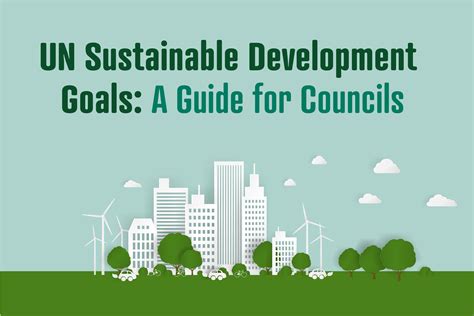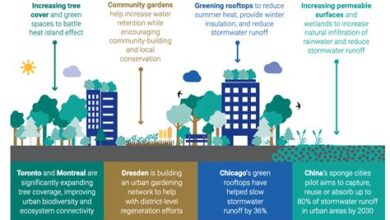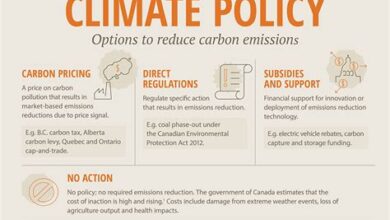The Role of Local Governments in Sustainable Development

Discover the importance of sustainable development and local governments’ responsibilities. Learn how to implement policies, engage the community, and measure impact.As we strive for a more sustainable future, it is essential to recognize the critical role that local governments play in achieving this goal. From implementing sustainable policies to fostering community engagement, local governments have a significant impact on the overall progress towards sustainable development. In this blog post, we will explore the various responsibilities and actions that local governments undertake in their efforts to promote sustainability. We will begin by defining sustainable development and the key principles that guide it. Then, we will dive into the specific responsibilities that local governments have in supporting sustainable development. Additionally, we will discuss the ways in which these governments implement sustainable policies and encourage community engagement to ensure the success of these initiatives. Finally, we will explore how the impact and progress of these efforts are measured, providing insight into the effectiveness of local government action in creating a more sustainable future. Join us as we delve into the vital role of local governments in sustainable development.
Defining Sustainable Development
Sustainable development is a concept that has gained significant attention in recent years, as the need for environmental and social responsibility has become increasingly clear. Sustainable development refers to development that meets the needs of the present without compromising the ability of future generations to meet their own needs. It takes into account the interconnectedness of environmental, economic, and social systems, and seeks to create a balance that promotes long-term well-being and prosperity for all.
In order to achieve sustainable development, it is essential to address issues such as climate change, resource depletion, and social inequality. This requires proactive and holistic approaches to resource management, economic growth, and social equity. Defining sustainable development involves recognizing the importance of preserving natural resources, promoting economic prosperity, and ensuring social justice for all members of society.
Ultimately, sustainable development is about creating a world in which all people can live full and healthy lives, while also leaving a positive legacy for future generations. It requires a shift in mindset and approach, as well as a commitment to collaboration and innovation at all levels of society. Sustainable development is not just a goal to strive for, but a way of thinking and acting that can lead to a more harmonious and resilient world for all.
Local Governments’ Responsibilities
In promoting sustainable development, local governments play a crucial role in ensuring that policies and initiatives are implemented at the community level. One of their primary responsibilities is to create and enforce regulations that support sustainable practices in areas such as urban planning, waste management, and transportation. This includes zoning laws that encourage mixed-use development, waste reduction programs, and the expansion of public transit options.
Local governments also have the responsibility to engage with the community and foster collaboration between residents, businesses, and other stakeholders. This can be achieved through public hearings, town hall meetings, and working groups aimed at generating ideas and feedback from the local population. By involving the community in decision-making processes, local governments can ensure that the needs and concerns of the people are reflected in sustainable development plans and policies.
Furthermore, local governments are responsible for monitoring and evaluating the impact of sustainable initiatives to assess progress and make necessary adjustments. This involves collecting and analyzing data related to energy consumption, air and water quality, and land use to measure the effectiveness of sustainable policies. By tracking these indicators, local governments can identify successes and challenges, which inform future decision-making and resource allocation.
Implementing Sustainable Policies
Implementing sustainable policies is a crucial step in the journey towards achieving sustainable development. Local governments play a significant role in this process, as they have the power to create and enforce policies that directly impact their communities. These policies can cover a range of areas, from environmental conservation to social welfare and economic development. By taking action to implement sustainable policies, local governments have the opportunity to lead by example and inspire positive change.
One way that local governments can implement sustainable policies is by integrating environmental considerations into their decision-making processes. This can involve setting targets for reducing carbon emissions, promoting renewable energy sources, and implementing waste management strategies. By prioritizing these initiatives, local governments can contribute to global efforts to combat climate change and protect the natural environment for future generations.
Furthermore, local governments can encourage sustainable practices within their communities by providing support and incentives for businesses and residents. This can include offering grants for sustainable infrastructure projects, promoting energy efficiency programs, and implementing regulations that incentivize eco-friendly practices. By fostering a culture of sustainability within their jurisdictions, local governments can lay the groundwork for long-term environmental and social progress.
Fostering Community Engagement
Community engagement is a vital aspect of sustainable development, as it involves the active participation of local residents in decision-making processes that impact their lives and environment. Fostering strong community engagement allows for a more inclusive and holistic approach to sustainable development, as it ensures that the diverse needs and desires of the community are taken into account.
Local governments play a crucial role in fostering community engagement by providing platforms for citizens to voice their opinions, participate in planning processes, and contribute to the development of sustainable policies. They can organize public forums, town hall meetings, and workshops to encourage dialogue and collaboration between community members and government officials.
Furthermore, local governments can also support community-led initiatives and projects that aim to promote sustainable development within neighborhoods. By providing resources, grants, and technical assistance, they can empower communities to take ownership of their own development and create positive change from the ground up.
Measuring Impact and Progress
When it comes to sustainable development, it’s important for local governments to have a clear understanding of the impact and progress of their policies and initiatives. Measuring the impact of sustainable development efforts allows governments to assess their effectiveness and make informed decisions about future actions. This process involves collecting and analyzing data related to environmental, social, and economic factors to determine the overall success of sustainability initiatives.
Additionally, progress must be regularly assessed to ensure that local governments are meeting their sustainability goals and targets. This involves tracking key indicators such as air and water quality, energy consumption, waste management, and community well-being. By monitoring these indicators over time, local governments can identify areas of improvement and make adjustments to their policies and strategies as needed.
Furthermore, measuring impact and progress provides accountability and transparency to the community. When local governments are able to clearly demonstrate the positive changes and outcomes resulting from their sustainable development efforts, they can build trust and engagement with their residents, creating a stronger partnership for continued progress.





